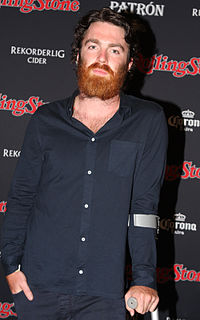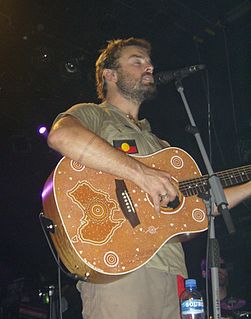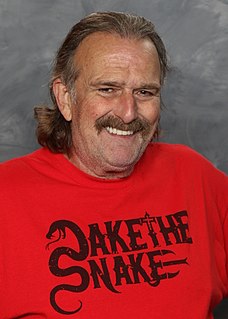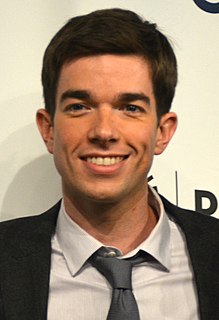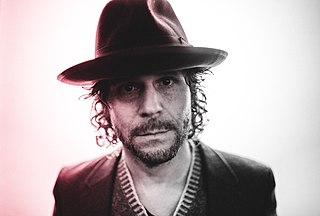A Quote by Chet Faker
I think that connection with humans is so important. Sometimes I'll do this monologue and talk to the crowd, like, 'Come on, let's really connect here.' I don't think a lot of people understand it's a two-way exchange. Some people go to a show and are like, 'Yeah, you make me feel.' That's not how it works.
Related Quotes
Sometimes I'll read things in the script and think, "That's not how humans behave," or "I don't understand how to do that role and make it seem like I'm not some kind of strange alien or on a sitcom." I don't get it, and when I feel that way, I have to listen to my instinct. My initial instinct does lead me in a direction that I can trust.
When people connect to my work, it makes me feel great. A lot of that stuff is really deep, and when I play something and people feel what I feel, and use it in important situations in their lives, like at weddings or funerals, that's so powerful. It means I can connect with them on an important level.
I'm not really into religion, OK. I saw a lot of things I did not like when I got into organized religion. I think a lot of people abuse it, I think a lot of people use it, I think a lot of people make it what they want. And me, my faith and my relationship with God is very personal. And it's not anybody's damn business how we talk.
I feel like I'm doing something that's worthwhile. I feel like I'm showing something other people haven't shown. I don't get to talk to the people who I photograph, I just go, along, banging away. So I don't really have a relationship with them. A lot of people think it's very important. I don't. It's like love at first sight. I have an impression when I see somebody, and I have an idea of who they are, or what they are.
Image and music always works together for me. I think they're equally important and I've always done things in a way that people remember them by, but I don't set out to just shock people...because that's very easy, a lot of people could do that, I just like to do things the way that makes me happy really. And sometimes that's too much for certain people, but, you know, I try to push the envelope to make the boundaries wider as far as what you can and can't do in music.
The way the world works now, the way the rules of engagement operate, you can't claim to make sense out of the exterior without booking voyages into the interior. Think about it: How can you understand 'it' if you haven't made any effort to understand 'you'? Because what you're really doing is establishing a living, electrical, vital, energetic connection between it and you. You're creating both of them, simultaneously. A lot like quantum physics.
If you don't connect yourself to your family and to the world in some fashion, through your job or whatever it is you do, you feel like you're disappearing, you feel like you're fading away, you know? I felt like that for a very very long time. Growing up, I felt like that a lot. I was just invisible; an invisible person. I think that feeling, wherever it appears, and I grew up around people who felt that way, it's an enormous source of pain; the struggle to make yourself felt and visible. To have some impact, and to create meaning for yourself, and for the people you come in touch with.
I feel like I gotta get out of myself sometimes. I think I'm in my own world sometimes. I don't like to let other people come into my own world. Especially with my teammates, my coaches, I should be doing that. The important people that need to know how I'm feeling. I can do a better job of telling them exactly how I feel.
There are certain neighborhoods in America like that - like in Pittsburgh, where I'm from - where people wouldn't think it's even livable for human beings. Those are the areas that I connect with because I come from places like that, and I just think it's interesting how the rest of the world acts like it doesn't exist. But a lot of the best things come from there.
